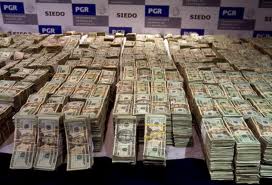According to a US Senate report, HSBC Holdings Plc has a pervasively polluted culture that allowed the bank to act as financier to clients looking for a way to route shady funds from the world’s most dangerous regions, such as Mexico, the Cayman Islands, Iran, Syria, and Saudi Arabia. The British bank’s problems have been known for almost a decade and the Senate investigation detailed the vastness of the problems have been.
According to the US Senate report, the Office of the Comptroller of the Currency, which is the top US bank regulator, failed to monitor HSBC. The report came at a troubling time for the banking industry, which is still suffering from the multi-country investigation into the manipulation of global benchmark rates. Just last month, rival British bank Barclays Plc agreed to pay $453 million as settlement to a US-UK probe into the rigging of the benchmark interest rate, which is known as the London interbank offered rate or Libor.
The Senate probe gives a look into how HSBC responded when confronted with cases of shadowy transactions. The report is the culmination of a year-long probe that included a review of 1.4 million documents and interviews with 75 HSBC officials and bank regulators. The bank will be the focus of a hearing Tuesday where OCC and HSBC officials are set to testify.
They will have to answer tough questions at the hearing regarding how the abuses were allowed to continue even after the OCC sanctioned the HSBC in 2010. An investigation made by Reuters found out some lapses in the bank’s anti-money laundering compliance since 2010 to the present.
HSBC said that the Senate report provided the bank important lessons for the whole industry in looking to prevent illicit actors entering the global financial system. The bank added that it is spending more money on compliance and has become more coordinated in regulating high-risk transactions.
